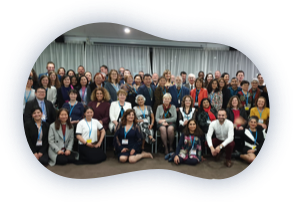
For Members of the Public, Professionals and Organisations working with Interpreters and/or Translators
General Guidelines and Recommendations
FAQs
Risks of Not Working with Qualified Practitioners
Guidelines for Legal Settings
Guidelines for Health Care Settings
Guidelines for Community Translations
Guidelines for Cultural Institutions using Translations
The AUSIT Code of Ethics
Videos & Podcasts
For Practitioners
The Benefits of being a Member of AUSIT
Join AUSIT: Application Form
AUSIT Engage (community engagement hub)
Guidelines for Practitioners
Professional Development
AUSIT Mentoring Program
Webinars
AUSIT Events
In Touch Magazine
Blogs (including past President’s Newsletters)
Videos & Podcasts
Paul Sinclair Award
AUSIT Excellence Awards
AUSIT Fellows
The AUSIT Code of Ethics
The Sydney Declaration (AUSIT National Conference Statement 2023)
The Benefits of being a Member of AUSIT
Join AUSIT: Application Form
AUSIT Engage (community engagement hub)
Guidelines for Practitioners
Professional Development
AUSIT Mentoring Program
Webinars
AUSIT Events
In Touch Magazine
Blogs (including past President’s Newsletters)
Videos & Podcasts
Paul Sinclair Award
AUSIT Excellence Awards
AUSIT Fellows
The AUSIT Code of Ethics
The Sydney Declaration (AUSIT National Conference Statement 2023)


